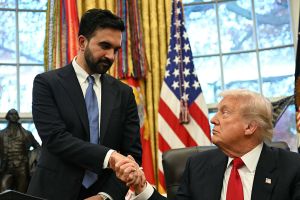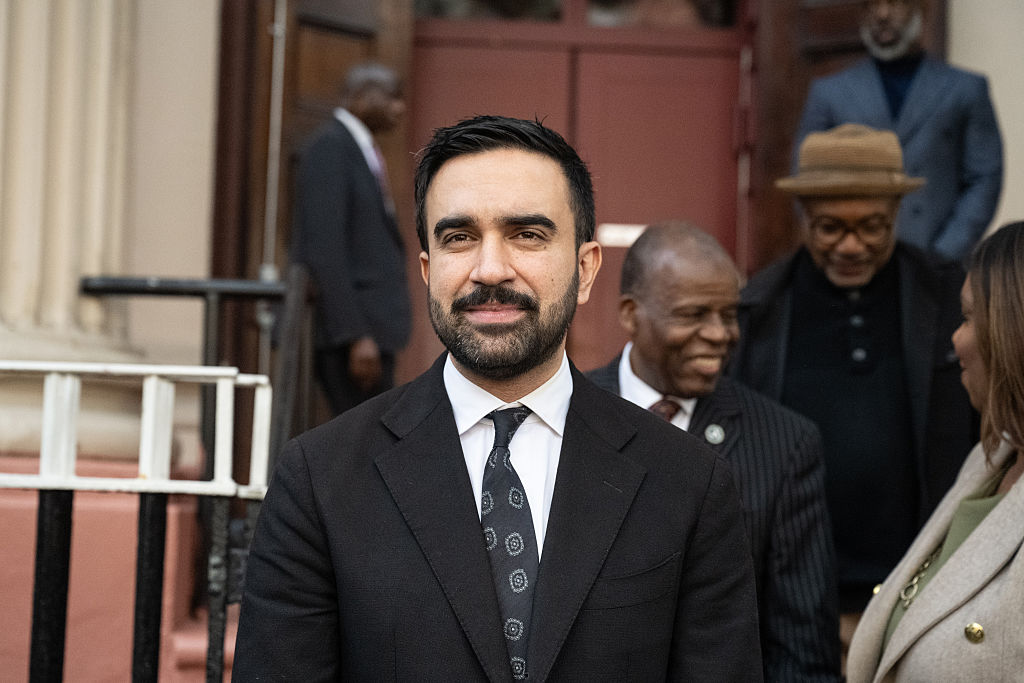President Trump was matter-of-fact when he was asked about the likelihood of an Israeli military strike on Iran’s nuclear facilities. “I don’t want to say imminent, but it looks like it’s something that could very well happen,” he told reporters Thursday afternoon.
It turns out that Trump was off-the-mark. Hours later, the Israelis conducted a major bombing campaign against dozens of Iranian targets purportedly linked to its nuclear, missile and military programs. Dubbed “Operation Rising Lion,” Israeli Prime Minister Benjamin Netanyahu claimed the operation was geared to hit the heart of Tehran’s nuclear capability in order to protect Israel’s survival. “This operation will continue for as many days as it takes to remove this threat,” the Israeli premier said, adding that Natanz, Tehran’s largest uranium enrichment complex, was targeted as well. Several senior Iranian officials, including Gen. Hossein Salami, the commander of the Islamic Revolutionary Guard Corps, were reportedly eliminated, although given the fast-moving developments and multiple claims, it’s hard to determine anything with full accuracy.
The Trump administration obviously knew something was up. A day before Israel’s military action, the State Department and Pentagon ordered the evacuation of non-essential diplomatic staff from the U.S. Embassy in Baghdad as well as other U.S. military facilities in the Gulf. But being prepared doesn’t necessarily mean the administration will be happy about what Netanyahu has chosen to do. You will hear the usual statements about U.S. support for Israel, and as U.S. Secretary of State Marco Rubio wrote in a press release, “Israel advised us that they believe this action was necessary for its self-defense.” Yet it was Rubio’s assertion that Washington wasn’t involved in this operation that was most interesting, and it demonstrates something that has been clear for quite some time – Trump wants nothing to do with another war in the Middle East, if he can help it.
Three things are notable as developments progress.
First, let’s not sugar-coat it: in launching preventative military strikes against Iran’s nuclear infrastructure, Netanyahu has essentially killed off Trump’s diplomacy with Iran (or at least set it back significantly). It was becoming increasingly obvious as the weeks went by that Trump and Netanyahu had the same objective – prevent Iran from acquiring a nuclear weapon – but diverged on the strategy to achieve it. Trump wanted to try his hand at negotiations with the Iranians, and in April, he dispatched his friend and envoy Steve Witkoff to Oman to get the process moving. Netanyahu, however, has been clear that talking to the Iranians was a waste of time and indeed a hinderance to the military option he has been dreaming about for well over a decade. For Trump, Netanyahu choosing to initiate a conflict three days before Witkoff was scheduled to meet with Iranian Foreign Minister Abbas Araghchi in the sixth round is beyond unhelpful – it’s nothing short of sabotage.
Second, whether or not this escalates into a wider war will be determined in large part by the Iranian response. Tehran has taken a big hit, and if past is prologue, the Iranians aren’t going to sit there and nurse their wounds for very long. The Israelis are expecting a strong Iranian counterattack of some kind, as are U.S. defense officials. Iran has a number of ways to retaliate but one of the most likely is an even larger barrage of cruise and ballistic missiles against Israeli cities, above and beyond the limited salvos Tehran conducted during their previous flare-ups with Israel last year. And depending on the strength of Israel’s air defense systems, we could be looking at significant Israeli civilian casualties, which in turn could pressure Netanyahu to authorize even heavier bombing sorties. It doesn’t take a genius to see how this escalates into a big confrontation.
Finally, how will the Trump administration react? We simply don’t know. The U.S. military wasn’t involved in the Israeli airstrikes; Rubio and other unnamed U.S. officials made this point clear. The question is whether the United States will eventually become involved in the event of a drawn-out conflict between Israel and Iran that lasts days or perhaps even weeks. The Israelis are likely banking on U.S. defensive support to shoot down Iranian missiles, and it’s likely Netanyahu will receive it. U.S. logistical and intelligence support for offensive Israeli attacks on Iran, however, shouldn’t be offered. Doing so would in effect reward Netanyahu for torpedoing Trump’s diplomatic efforts, thrust the United States into a war it shouldn’t be fighting and increase the odds of Iran retaliating against the tens of thousands of U.S. troops that are stationed in the Middle East.
All of us will be on tenterhooks over the coming hours and days.


























Leave a Reply